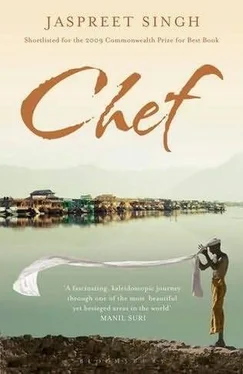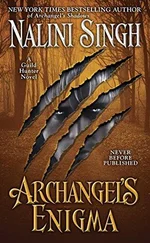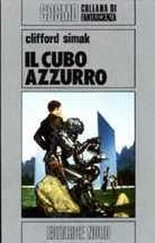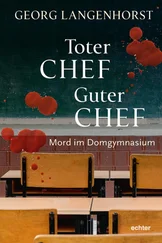Chef: Only lamb was used, sir. Hundred percent halal, sir.
The imams did not touch the meat dishes. They ate very little, and hurried to the inspection tent in their dark cloaks. Some of us from the kitchen followed as well.
Our army had set up a huge shamiana tent on the uppermost terrace of the garden. The imams were seated on the carpet, and I saw the General and the police chief standing close by with burning anxiety on their faces. The vial passed from one hand to other, and eventually it ended in the hands of the holiest man, the head imam, and he sat there gazing with wonder, and it took him twenty minutes to pass his verdict, and I did not see him nod, but I saw the tense expression on the police chief’s face change into a smile, and I heard the General’s sigh of relief.
The vial was returned to the mosque, put in the high-security room, and the protests stopped on the streets. I did not know then that those hours were the last few hours of my apprenticeship.
The next day Chef got a written order from the colonel’s office. He had been demoted, and was being transferred (with immediate effect) to the Siachen Glacier in the Karakoram mountains.
So I was now Chef.
Before he left I cooked Italian tortellini and poured him a tall glass of Kingfisher beer. During that dinner he played the slow movement of the German music on the tape recorder and told me many personal things, which to me at that moment sounded a bit comical. But with time the same things have become less and less comical. He talked about his family.
He began by telling me that the Kashmiri Hindus had no problems eating meat.
‘Brahmins do not eat meat,’ I protested.
‘They do, Kirpal. In Kashmir the Hindus eat goat and mutton. In olden days they used to eat cows, peacocks… Don’t give me that look.’
He poured another glass of Kingfisher.
‘In this country, Kip, we have too many taboos, and sometimes I get sick of them, really sick of them.’
‘But, Chef, in college the teacher told us that because of these taboos we Indians, Hindus and Sikhs and Muslims, were able to rise up against the British in 1857. The colonial officers introduced the Enfield rifle. It was bad technology, the soldiers were told to bite the cartridges in order to load the rifles. The cartridges were greased with offensive pig fat or cow fat… We refused. Mutiny! Our first war of independence!’
‘Yes, yes,’ he said. ‘But that was then.’
‘But it is true, Chef,’ I said.
‘In 1857 you Sikhs sided with the British.’
‘Chef, you are trying to lump all Sikhs into one,’ I said. ‘As if there is only one kind of curry powder? One kind of mango? One kind of Rogan Josh?’
‘One kind of woman!’
‘But, Chef, I am serious.’
‘So am I,’ he said. ‘So am I. You see, Kirpal, the foods I don’t eat, the things I find disgusting, have more to do with my memories and less with religion. Take chocolate. I run away from rooms in which I sense its presence.’
‘Why so?’
‘Because of my father,’ he said.
‘Father?’ I said.
‘In the hospital on his deathbed my old man had desired chocolate,’ said Chef Kishen. ‘I hurried to the shop in the bazaar. By the time I returned he was dead. Since that moment I find the smell of chocolate repulsive. Sometimes I hear my father saying to me, Son, eat a chocolate, for my sake eat it. But the moment I see or smell it the desire gets crushed.
‘But the story I really want to tell involves my grandfather,’ said Chef Kishen. ‘Despite being a Brahmin my grandfather didn’t believe in caste. He did not believe in taboos, Kip. Grandfather rarely entered the kitchen. He was not a cook, yet he knew his food well. He didn’t care who cooked in the kitchen as long as the veg or non-veg or whatever it was was good. Grandfather was married to an old woman who was a bad cook and she believed in caste. She made it very clear that she would die if a low caste ever cooked for her. One day the old woman was unwell and a low-caste woman took over the kitchen, and the moment grandfather revealed the identity of the cook, the old woman died. Her head fell on the bowl of curry on the table. The whole table became yellow with stains. The low-caste woman, the cook, became my grandmother.
‘And yet, in the end,’ said Chef, ‘no matter how hard we try – we are low-caste peoples and we do not matter. Army belongs to officers, Kirpal. I am worthless. I feed them, serve them, take ardors. I endure the heat of the tandoor, and then I am let go, or I leave on my own. My life has come to nothing. My work has come to nothing. What will I do there on the glacier? They eat canned food on high altitudes. We are the people who do not matter. Bleedy bastards,’ he said.
This was one of the few English words he knew. He said it in a thick accent. ‘What is the meaning of ‘‘bleedy bastards’’, Kip?’ I told him the meaning, and he confessed that all along he had imagined it to be the equivalent of bhaen-chod or ma-dar-chod.
We are the people who do not matter, he said. Bloody bastards.
There was a single tortellini left on his otherwise polished plate. He picked it up with his thumb and first finger.
‘Kip, this thing reminds me of a woman’s belly button.’
‘A woman’s what, sir?’
‘Navel.’
‘I wouldn’t know, sir.’
‘Here,’ he said. ‘Hold it.’
I held the tortellini in my left hand for a brief second and touched it with the first finger of my right, and surveyed the curious irregular shape. Then I turned it and turned it again and without hesitation put it in my mouth.
‘Congratulations, Chef!’ he said.
Next day Kishen took the bus to the glacier.
So many things begin with an egg. Your tumor looks like an egg, said the doctor. Three months to a year, he said with alarming precision. Surgery might help. Chemical therapy is torture, but it might prolong your life.
Doctor, I can’t afford the treatment, I told him. Just tell me what I am in for. Expect a few changes, he said. You are a cook, isn’t it? Cancer is an illness that cooks the innards of the body. It spreads from organ to organ eating itself, sometimes slowly, sometimes quickly. Time will come when you will not be able to hold a spoon or a pen. You will lose feeling on one side of your face. You will lose your hair, words, memories. Time will e-vap-o-rate. Space will con-den-se. Your nose will not be able to tell the difference between kara parshad and pizza. Appetite for food and sex will wither. Just like everything else, he said, food and sex reside in the brain. You will repeat yourself. You will confuse thoughts and words. You will try to say one thing but something else will come out of your mouth. You will speak your own language like a foreigner. Foreign words and accents will roll out of your mouth. People will get the wrong impression that you are trying very hard to become an Englishman or a Yankee. You will grow angry at yourself, but you will be more angry at others. You will use lots of foul, obscene words. Galis.
He sounded like a fortune-teller.
‘Shit,’ I said.
‘Certain things can at best be delayed. But,’ he said, ‘don’t give up hope.’
‘Does my cancer really look like…’
‘Do not worry. Right now it is the size of a pinhead. Here.’ He pointed at the CAT scan the way palmists point at lines on one’s hands. Looking at that shape I felt dizzy and my head started cracking and throbbing and pounding and that was the precise moment when my transformation began, my dying.
So many things begin with an egg, I say to myself.
The train is roaring over a bridge. I feel dizzy on the window seat. India keeps passing by. The melancholy villages keep passing by. How much I like these villages, and how much I am repelled by my fellow passengers. Civilians. We are racing at an alarming speed. The old engine is suddenly trying to make up for the lost time.
Читать дальше
Конец ознакомительного отрывка
Купить книгу












